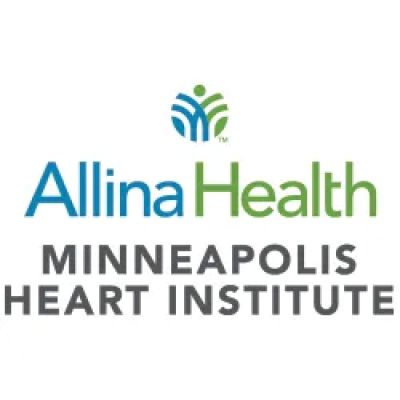Understanding Cholesterol Levels and Heart Disease
Cholesterol is a term we often hear in relation to heart disease, but what does it actually mean, and how does it impact our overall health? Many people are familiar with the concept of cholesterol, but not everyone fully understands how it works or how it affects the heart. In this article, we’ll explore what cholesterol is, why it’s essential, how it contributes to heart disease, and the steps you can take to manage your cholesterol for better heart health.

1. What is Cholesterol?
Cholesterol is a type of fat found in your blood, and it is necessary for building healthy cells. Your body needs cholesterol to produce certain hormones, vitamin D, and substances that help you digest food. However, too much cholesterol can increase your risk of heart disease. Cholesterol comes in two main forms: LDL (low-density lipoprotein), often referred to as "bad" cholesterol, and HDL (high-density lipoprotein), known as "good" cholesterol.
LDL is considered harmful because it can build up on the walls of your arteries, creating plaque. This plaque can narrow your arteries and make it harder for blood to flow through. On the other hand, HDL is beneficial because it helps remove LDL cholesterol from your arteries, preventing the buildup of plaque.
Atlanta Heart Specialists
atlanta heart specialists
4375 Johns Creek Pkwy #350, Suwanee, GA 30024, USA

2. How Cholesterol Affects Heart Disease
When you have high levels of LDL cholesterol, the risk of developing heart disease significantly increases. This is because the excess LDL can form plaque in your arteries, a condition known as atherosclerosis. As the plaque builds up, it can lead to a narrowing of the arteries, restricting blood flow to vital organs such as the heart and brain. If a clot forms and blocks the flow of blood, it can cause a heart attack or stroke.
Additionally, high cholesterol can lead to other heart-related issues such as high blood pressure and heart failure. Over time, the damage caused by high cholesterol can weaken the heart muscle and lead to serious complications. It’s essential to manage cholesterol levels to prevent these risks and maintain optimal heart health.
3. The Importance of Monitoring Your Cholesterol Levels
Regularly monitoring your cholesterol levels is one of the most important steps you can take to protect your heart. A simple blood test known as a lipid panel will measure your cholesterol levels, including your LDL, HDL, and total cholesterol levels. The American Heart Association recommends getting your cholesterol checked every four to six years starting at age 20, and more frequently if you have risk factors for heart disease.
The key goal is to maintain healthy levels of LDL and HDL. For most adults, the recommended levels are as follows:
- LDL cholesterol: Less than 100 mg/dL is optimal, while 100-129 mg/dL is near optimal.
- HDL cholesterol: 60 mg/dL or higher is considered protective against heart disease.
- Total cholesterol: Less than 200 mg/dL is considered desirable.
If your levels fall outside of these recommended ranges, your healthcare provider can offer personalized strategies to help improve your cholesterol and heart health.
4. Risk Factors for High Cholesterol and Heart Disease
While cholesterol levels can be influenced by genetics, several lifestyle factors can also affect your cholesterol levels and increase your risk of heart disease. Some of the most common risk factors include:
- Diet: Eating foods high in saturated fats and trans fats can raise your LDL levels and increase your heart disease risk.
- Physical inactivity: Lack of exercise can lower your HDL cholesterol levels, contributing to higher heart disease risk.
- Obesity: Being overweight or obese can raise your LDL cholesterol and lower your HDL cholesterol.
- Smoking: Smoking damages blood vessels and lowers HDL cholesterol, increasing the risk of heart disease.
- Genetics: Some individuals inherit genes that predispose them to high cholesterol levels, regardless of their lifestyle choices.
By identifying and managing these risk factors, you can reduce your cholesterol levels and improve your heart health over time.
5. Managing Cholesterol: Lifestyle Changes and Medications
Fortunately, there are many steps you can take to manage your cholesterol levels and reduce your risk of heart disease. Lifestyle changes, including a healthy diet, regular exercise, and smoking cessation, are the first line of defense. Here’s how you can take control of your cholesterol levels:
- Eat a heart-healthy diet: Focus on eating more fruits, vegetables, whole grains, lean proteins, and healthy fats (such as those found in fish, nuts, and olive oil). Avoid foods high in saturated and trans fats, which can raise LDL cholesterol.
- Exercise regularly: Aim for at least 30 minutes of moderate-intensity exercise most days of the week. Physical activity helps raise HDL cholesterol and improve overall cardiovascular health.
- Maintain a healthy weight: Losing excess weight can help lower LDL cholesterol and reduce your risk of heart disease.
- Quit smoking: If you smoke, quitting can improve your HDL cholesterol levels and decrease your heart disease risk.
If lifestyle changes alone aren’t enough to bring your cholesterol levels under control, your doctor may recommend medications. Statins are the most commonly prescribed medications for lowering LDL cholesterol, but other options such as bile acid sequestrants, cholesterol absorption inhibitors, or PCSK9 inhibitors may also be prescribed depending on your needs.
6. The Role of Regular Check-Ups in Preventing Heart Disease
Even if you’re managing your cholesterol levels, it’s essential to schedule regular check-ups with your healthcare provider. Regular visits allow your doctor to monitor your progress, make adjustments to your treatment plan, and provide guidance on maintaining heart health. In addition, early detection of any issues can help prevent complications from arising down the line.
Incorporating healthy lifestyle habits, monitoring cholesterol, and following your doctor’s advice are key steps in maintaining a healthy heart. If you’re unsure about where to start or need help managing your cholesterol, it’s never too late to seek professional support and take control of your health.





















Deborah Heart and Lung Center
deborah heart and lung center
200 Trenton Rd, Browns Mills, NJ 08015, USA